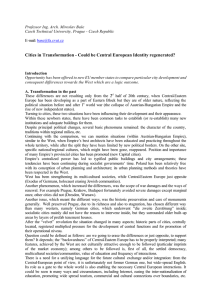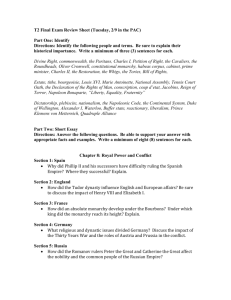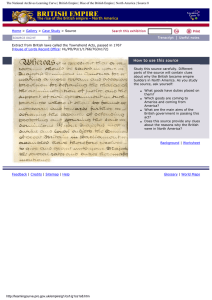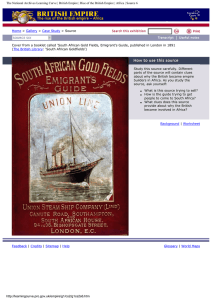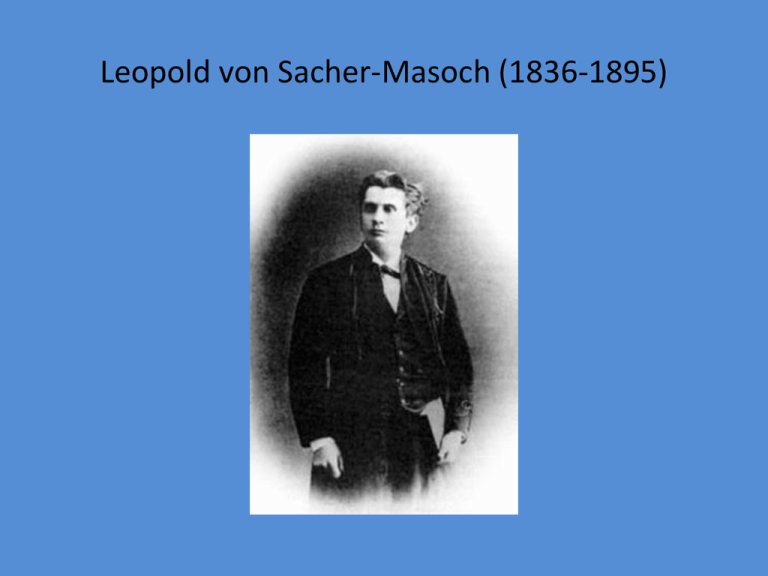
Leopold von Sacher-Masoch (1836-1895)
Biographical background
• Born 1836 Lemberg (Lvov)
• “Galicia” – today eastern Poland / western
Ukraine
• Habsburg Monarchy / Austrian Empire
Map of Austro-Hungarian Empire, 1918
Galicia in mid-19th century
• multi-cultural – Poles, Ruthenian farmers,
Jews, Germans
• hotbed of Slavic nationalism: Galician Uprising
1846
• desire to break away from Austrian Empire
(led by Polish aristocrats)
Galician Uprising 1846
• failed: Polish and Ruthenian farmers defeated
it
• loyalty to the Kaiser
• uprising witnessed by Sacher-Masoch as a
child: features in many of his prose works
Prague Revolution 1848
• 1848: family moves to Prague
• witnessed the Prague Revolution of 1848
• Uprising against Kaiser and Habsburg
Monarchy
• Move to Graz (Austria)
• Sacher-Masoch became a literary figure here
• Known as a writer and also ran two literary
periodicals
Sacher-Masoch Snr.
• police agent in service of Kaiser and Empire
• German-speaking chief of police in Lemberg
• “Stadthauptmann” in Prague
• very cultured: ran a literary salon in Prague
Sacher-Masoch Jnr.
• literary and academic figure
• prolific writer: combined political context of
childhood home, Galicia, with erotic /
romantic adventures
• work reflects tensions of life in absolutist state
Decline of Empire
• profiles a world between tradition and change
• 1867: Compromise with Hungary
• emergence of Dual Monarchy / AustroHungarian Empire
• end of Dual Monarchy: 1918
“illness as metaphor”
• gender warfare: power struggle
• sadism / masochism: sexually-inflected power
politics
• sexual perversions: politically charged
• overall sense of degeneration, nihilism
Venus im Pelz (1869)
• controversial
• undermined contemporary ideals of bourgeois
marriage
• subservience of woman to man
Venus im Pelz (1869)
• went against “natural order”
• different view: R. von Krafft-Ebing: condition
of male protagonist is a sexual pathology of
psychic origin
• maybe Sacher-Masoch was simply
progressive! (M. Cosgrove)
Sacher-Masoch
• progressive gender politics (also progressive
politics on integration of Jews)
• supported women’s emancipation / education
• “Die Frau muß befreit werden aber nicht durch
Männerkleider, Cigarren – durch Bildung und
Arbeit”.
– {Briefe, 18.05.1866}
personal life
• mistress Baroness Fanny Pistor
• 1869: Pistor and Sacher-Masoch sign a
contract
• cruelty, furs, “Gregor”, trip to Italy
• Venus im Pelz is not autobiography
Mme. Fanny Pistor et Sacher-Masoch, c. 1869

